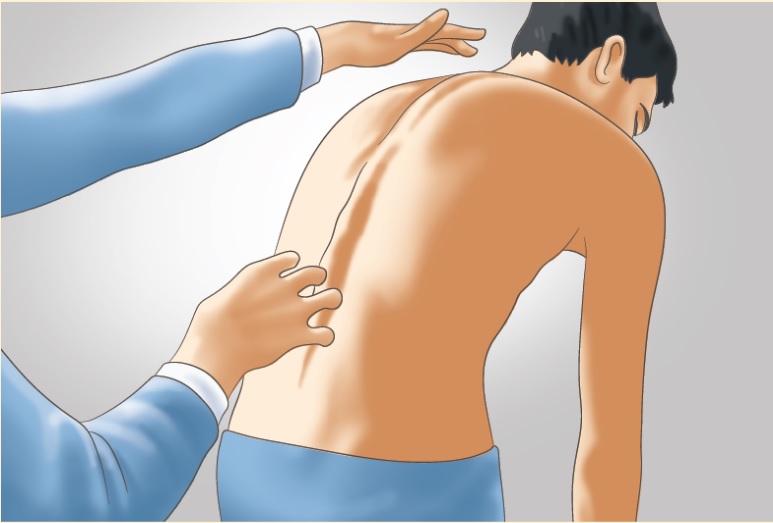Can Medical Cannabis Offer Relief for Scoliosis Sufferers?
Scoliosis, a condition where the spine twists and curves, often leads to pain and other associated symptoms. Typically identified during childhood or early adulthood, scoliosis commonly arises during puberty’s growth spurts. Early interventions can help halt the progression of the spinal curvature and minimise related symptoms. However, as patients age, the curvature can worsen, potentially leading to discomfort and respiratory complications.
The Different Types of Scoliosis
There are four main types of scoliosis:
-
Idiopathic: Approximately 80% of scoliosis cases are classified as idiopathic, meaning the cause is unknown. It is usually diagnosed during puberty and may have a genetic component, although this has yet to be conclusively proven.
-
Congenital: This type arises from vertebral or rib deformities that occur during development in the womb. Various developmental factors can contribute to this misalignment.
-
Neuromuscular: Linked to underlying neuromuscular conditions like cerebral palsy or muscular dystrophy, neuromuscular scoliosis affects the spinal growth process due to weakened or compromised muscles.
-
Degenerative: Common in individuals over 65, this form of scoliosis results from ageing, loss of muscle tone, and spinal bone degradation.
Conventional Treatment Options for Scoliosis
Treatment for scoliosis depends on its severity and can be tailored to suit individual needs:
-
Non-Surgical Treatments: Mild cases can be managed with physical therapy or bracing to correct posture and reduce discomfort.
-
Surgical Treatments: Severe cases may require surgery, with rods and screws inserted to gradually correct the spinal curvature.
-
Pharmaceutical Options: Pain-relief medications, such as NSAIDs, muscle relaxers, or in more severe cases, opioids, may be prescribed.
Lifestyle changes, including regular low-impact exercises like yoga, swimming, and pilates, are often recommended to reduce symptoms. Stretching, physiotherapy, and maintaining good posture also contribute to effective management.
Can Medical Cannabis Provide Symptom Control for Scoliosis?
Although more research is needed, emerging evidence suggests that medical cannabis may help alleviate symptoms such as pain, inflammation, and muscle tightness associated with scoliosis. For patients who rely on strong pharmaceuticals, including opioids, medical cannabis may offer an alternative treatment option, potentially reducing the need for these heavier medications.
A 2022 study titled “Medical Cannabis Use Reduces Opioid Prescriptions in Patients with Chronic Back Pain” found that patients using medical cannabis reported significant reductions in opioid prescriptions and self-reported improvements in pain management. Additionally, The Efficacy of Cannabis in Reducing Back Pain: A Systematic Review highlighted cannabis’s potential to treat back pain with minimal risk of side effects.
Cannabinoids, including CBD, have also been shown to reduce inflammation. A study focusing on the anti-inflammatory properties of cannabinoids found that they can downregulate inflammatory responses, making medical cannabis a potentially useful treatment for scoliosis-related pain.
Mental Health Benefits
Scoliosis can have a profound impact on a patient’s mental health, leading to anxiety and sleep disturbances. Medical cannabis has shown potential in addressing both these issues. A study on the effectiveness of CBD in reducing anxiety and improving sleep found that 79% of participants reported reduced anxiety, and 67% experienced improved sleep quality after using CBD.
Potential Risks and Side Effects of Medical Cannabis
While medical cannabis offers promise, it’s important to consider the potential risks, including:
-
Dependence: Only products containing THC carry a risk of dependence. Careful supervision by a qualified medical professional can minimise this risk.
-
Minor Side Effects: These can include dry mouth, increased appetite, cognitive impairment, dizziness, and fatigue. It is generally recommended to start with a low dose and gradually increase as needed, with medical guidance.
Legal Status of Medical Cannabis in the UK
As of November 2018, medical cannabis is legal in the UK and can be prescribed by registered doctors. However, NHS prescriptions for medical cannabis are often reserved for severe conditions like epilepsy, meaning many patients turn to private clinics for faster access to a wider range of treatments. Releaf also offers additional legal protection through its medical cannabis card, which can be presented during interactions with law enforcement.

